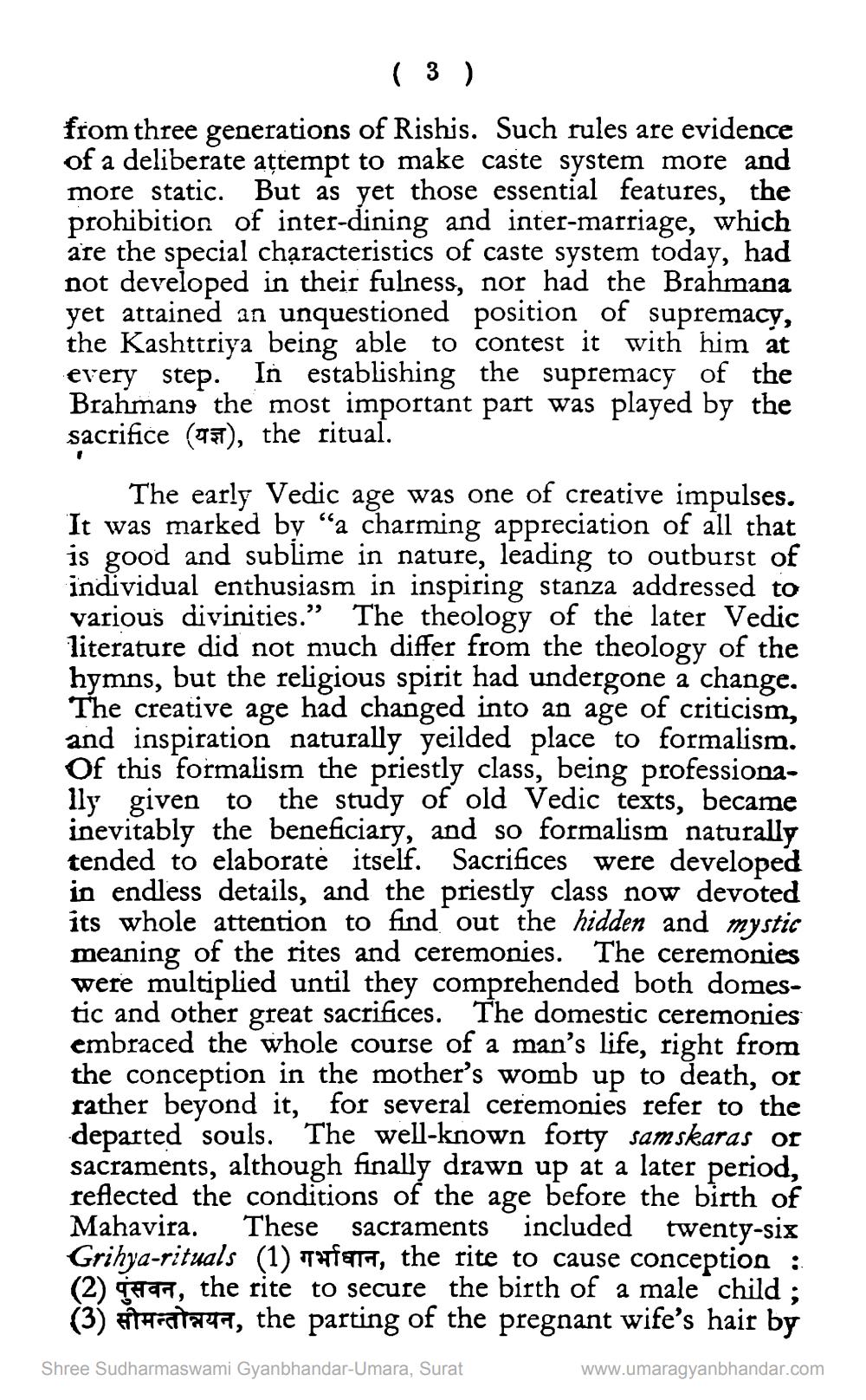________________
(3) from three generations of Rishis. Such rules are evidence of a deliberate attempt to make caste system more and more static. But as yet those essential features, the prohibition of inter-dining and inter-marriage, which are the special characteristics of caste system today, had not developed in their fulness, nor had the Brahmana yet attained an unquestioned position of supremacy, the Kashttriya being able to contest it with him at every step. In establishing the supremacy of the Brahmans the most important part was played by the sacrifice (957), the ritual.
The early Vedic age was one of creative impulses. It was marked by "a charming appreciation of all that is good and sublime in nature, leading to outburst of individual enthusiasm in inspiring stanza addressed to various divinities.” The theology of the later Vedic literature did not much differ from the theology of the hymns, but the religious spirit had undergone a change. The creative age had changed into an age of criticism, and inspiration naturally geilded place to formalism. Of this formalism the priestly class, being professionally given to the study of old Vedic texts, became inevitably the beneficiary, and so formalism naturally tended to elaboratė itself. Sacrifices were developed in endless details, and the priestly class now devoted its whole attention to find out the hidden and mystic meaning of the rites and ceremonies. The ceremonies were multiplied until they comprehended both domestic and other great sacrifices. The domestic ceremonies embraced the whole course of a man's life, right from the conception in the mother's womb up to death, or rather beyond it, for several ceremonies refer to the departed souls. The well-known forty sam skaras or sacraments, although finally drawn up at a later period, reflected the conditions of the age before the birth of Mahavira. These sacraments included twenty-six Grihya-rituals (1) far, the rite to cause conception : (2) Tan, the rite to secure the birth of a male child; (3) FACET, the parting of the pregnant wife's hair by
Shree Sudharmaswami Gyanbhandar-Umara, Surat
www.umaragyanbhandar.com




